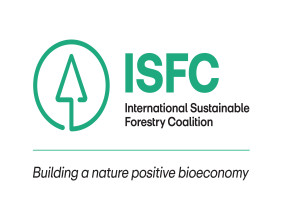Highlights
A new head at the US FDA's Center for Biologics Evaluation and Research has initiated discussions around vaccine policy direction.
FTSE-listed pharmaceutical companies such as AstraZeneca (LSE:AZN) and GSK (LSE:GSK) are facing renewed scrutiny amid global regulatory shifts.
Market reactions and strategic evaluations follow remarks from global industry peers and regulatory outlook changes.
The pharmaceutical sector plays a critical role in the global healthcare framework, serving as the primary driver for drug and vaccine development across international markets. In the United Kingdom, leading companies listed on the FTSE 100 index, including AstraZeneca (LSE:AZN) and GSK (LSE:GSK), form a significant component of both the healthcare industry and the broader index performance. These firms are frequently included in the best FTSE 100 tracker portfolios due to their size and global relevance. Recent leadership changes at the US Food and Drug Administration (FDA) have contributed to a shifting landscape, prompting increased attention from global stakeholders.
New Direction at the US FDA
The appointment of Vinay Prasad as the director of the Center for Biologics Evaluation and Research introduces a notable change in the US regulatory environment. Known for his critical approach to existing vaccine approval mechanisms, Prasad's leadership is viewed as a departure from prior policy positions. This change has generated widespread interest across pharmaceutical circles as companies assess how evolving approval criteria may influence development schedules.
Market Shifts Following the Announcement
In the immediate aftermath of this appointment, several large-cap pharmaceutical companies based in the United States observed noticeable drops in share prices. Firms such as Eli Lilly, Merck, and AbbVie experienced negative movements, with reactions attributed to concerns over slower or revised approval timelines for new treatments. The developments served as a signal to global industry participants that procedural shifts could affect operations beyond national borders.
Vaccine-Focused Firms Reassess Strategy
For vaccine developers, any change in regulatory philosophy can alter timelines for research and market introduction. Companies with international reach, such as AstraZeneca and GSK, are likely reviewing their operational roadmaps to ensure alignment with any new requirements. While current procedures remain in place, changes to approval criteria could extend the time required to bring new vaccines to various markets, influencing pipeline planning and trial management.
Global Peer Influence and Broader Sector Pressures
Beyond the United States, remarks from international pharmaceutical leaders have added further complexity to the industry backdrop. A statement from Novo Nordisk, a key player in European pharmaceuticals, introduced caution into the market, contributing to subdued sentiment. Such developments underscore the multifaceted influences shaping performance across the healthcare sector, especially for large companies that operate on a global scale.
Adjustments by FTSE-Listed Pharmaceutical Leaders
With these evolving circumstances, FTSE 100 constituents like AstraZeneca and GSK are expected to navigate this environment by leveraging established research infrastructure and long-standing regulatory experience. The ability to adapt to international regulatory expectations remains integral for companies whose operations span several regions. Maintaining a focus on regulatory compliance and development continuity may become central themes in the coming periods.
The presence of such healthcare giants in the FTSE 100 index often draws attention from those reviewing the best FTSE 100 tracker funds, especially during phases of regulatory change or international policy transition. Shifts in sentiment around regulatory processes may influence the weight and attention given to pharmaceutical stocks within broader index-tracking strategies.






